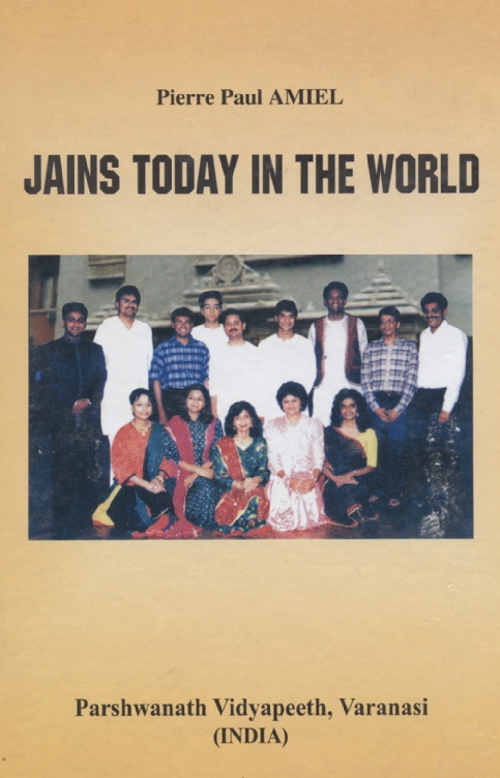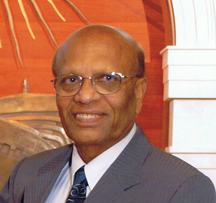 Pierre Paul Amiel, France |
"JAINS TODAY IN THE WORLD” is an exploration by the author of an ancient and relatively little-known faith that is surprisingly relevant for the XXIst century. It is a faith system that emphasizes non-violence, respect for the environment and the power of meditation - all while eschewing material possessions and encouraging the control over the self.
Jainism, a religion originating from India - with Hinduism and Buddhism - is an integral part of India. The Jain tradition, which enthroned the philosophy of ecological harmony and non-violence as its lodestar, flourished for centuries side-by-side with other schools of thoughts in ancient India. It formed a vital part of the mainstream of ancient Indian life, contributing greatly to its philosophical, artistic and cultural heritage. During certain periods of Indian history, many ruling elites as well as large sections of the population were Jains.
Although the ten millions Jains estimated to live in modern India, constitute a tiny fraction of its population, the message and motifs of the Jain perspective, its unconditional reverence for life in all forms, its commitment to the progress of human civilization and the prevention of the natural environment, continues to have profound and pervasive influence on Indian life and outlook. Jainism, with its distinctive views on matters such as non-violence and intellectual relativity, has relevance to the life and thought of not only this century but also for many centuries to come.
Jainism has succeeded in preserving to the present time its integrity as a separate system in the midst of preponderant Hinduism. Jainism is a complete system with all necessary branches such as ontology, metaphysics, philosophy, epistemology, ethics, rituals, art and architecture, etc. It has its own scriptures, temples (architecturally, some of the most beautiful temples in India are the Jain temples) and deities, places of worship and pilgrimages, and its own festivals and fairs. The organized religious group (saṁgha) consists of ascetics and householders of both genders.
Any one individual did not found the present form of Jainism. It is a religion, which developed over a long period of time and then acquired its own distinctive status within the broad Indian system. Its latest prophet, Lord Mahāvīra, was a contemporary of Lord Buddha more than 2500 years ago; he lived in the same Indian state of modern Bihar, as did Lord Buddha. Lord Mahāvīra was the 24th prophet. The 23rd, Lord Pārśvanātha was 250 years ago before him and the 22nd, Lord Neminātha, a contemporary of Lord Kṛṣna of the Hindus, was at least more than two thousand years before the 23rd prophet.
 The Sanskrit word "JAIN" means the followers of the JINAS those who purified their self by conquering their inner enemies and passions such as anger, greed, ego, deceit, attachment, aversion, hatred etc. and attained complete perfection and omniscience.
The Sanskrit word "JAIN" means the followers of the JINAS those who purified their self by conquering their inner enemies and passions such as anger, greed, ego, deceit, attachment, aversion, hatred etc. and attained complete perfection and omniscience.
Jainism is well known in India but because of its non-missionary nature, it is relatively much less known outside, although its principles of non-violence and intellectual relativity are quite well recognized. In the XXth century, the most vibrant and illustrious example of Jain influence was that of Mahatma Gandhi, acclaimed as the Father of the Indian Nation. Gandhi's spiritual friend and mentor, Śrīmad Rājachandra, was a Jain. The two great men corresponded, until Rājachandra's death, on issues of faith and ethics. The central Jain teaching of ahiṁsā (non-violence) was the guiding principle of Gandhi's civil disobedience in the cause of freedom and social equality. His ecological philosophy found apt expression in his observation that the greatest work of humanity could not match the smallest wonder of nature.
Nearly four decades ago, my professional activities led me to take my abode in the United States of America. Here, I met numerous Jains who wished, liked me, to maintain their religion and to continue to observe their traditional ethical and philosophical principles. For that reason, we created and established various organizations of followers of Jainism (nearly 100 now) that organize the practice of worship, the building of temples (nearly 50 now), the exercise of mutual aid, community service, pilgrimages to sacred places in India and so on. These organizations are now grouped in a larger general Federation in North America that is known as "JAINA" (Federation of Jain Associations in North America) of which I have been the Secretary for four years and the President for the next four years.
In 1993, in the course of the biennial convention of JAINA in Pittsburgh, Mr. Pierre Amiel was introduced to me. For many years he was already in communication with Dr. S.A.B. Kumar, the editor of Jain magazine "Jinamañjari in Canada. Dr. Kumar invited Mr. Amiel to take part in that convention. Pierre Amiel who had before numerous contacts with Mr. Satish Kumar Jain, Secretary general of "Ahiṁsā International" in New Delhi, was highly impressed by the JAINA convention. In America, he also attended the "pratiṣṭha' of the temple at Bartlett (Illinois) and met the Bhattaraka Davendra Keerti Ji from Humcha.
Passionate about India and its spirituality, Pierre Amiel has shown a profound interest in the religions of that country and especially in Jainism. On his own he studied several Indian languages, established contacts with many prominent Jains throughout the world, met several in the U.K., U.S.A. Canada, visited their homes, stayed with them, watched with keenness their rituals and life styles, attended Jain functions and conventions, collected a good library of Jain literature and also did research in several prominent libraries in Europe.
He also researched Jainism extensively through several travels and by perusing the English literature on the matter. Year after year, his collection of books and publications on Jainism increased that gave him access to precious information. He has taken part in various study groups and written articles about Jainism in several magazines. Till several years ago, before his moving into an apartment, he named his house in France "La Jaina".
Nearly 200,000 Jains now live outside India. There are Jains in Antwerp (Belgium) and Germany but only a handful in France. Majority of these Jains live in English speaking countries such as U.S.A., Canada, U.K., Australia, Singapore and East Africa. As a result, a large number of books on Jainism have been published in the English language but hardly any in the French language (except a few for the academics), which is still spoken in more than 45 countries in the world. Realizing this, Pierre Amiel published in 1998 his French translation of the very interesting study on MAHĀVĪRA's life written by Dr. Bool Chand Jain. In 1999, he published the translation in French of Dr. Vilas Adinath Sangave's excellent book "Aspects of Jaina Religion”. In 2003, Pierre Amiel himself authored the book "Les Jains aujourd'hui dans le monde". Bringing Jainism to the attention of the French-speaking world has been one of the main objectives of the author.
This book is quite comprehensive in its contents. Starting with the long history of the Jains, their diversity, sacred texts and philosophy, etc. this also covers temples, places of worship, life of householders and ascetics, rituals, ceremonies, festivals and the influence and richness of Jainism. Readers will find in this English version not only informative and interesting but also engaging and enlightening about a tradition that is not only ancient but still very living, dynamic and highly relevant. Effectively, as Jains, we remain absolute defenders of life, of the environment, of absolute non-attachment to material things, of self-control, of tolerance, of control of the ego and of non-violence. Our tenets are those of respect for human beings, for animals and nature, for life in general, for progress of humanity and for peace.
Jains with their long history, their sacred literature, their temples, their ways of living, their rites, customs and the influence we had and we have, as well as their settlements in numerous countries in the world now are well presented in this book which is easy to read, well documented and destined to a large audience.
I express my hearty thanks to Pierre Amiel for his initiative. I wish all who will read this book will know us better and share even just a little of our vision of the world today, so as to be more humane, more just and in harmony with the teachings we received from our great "Tīrthaṅkara", those who, by their lives and their examples, have shown the right way, that of the "Jina" (of the Conquerors).
 Dr. Sulekh Chand Jain
Dr. Sulekh Chand Jain